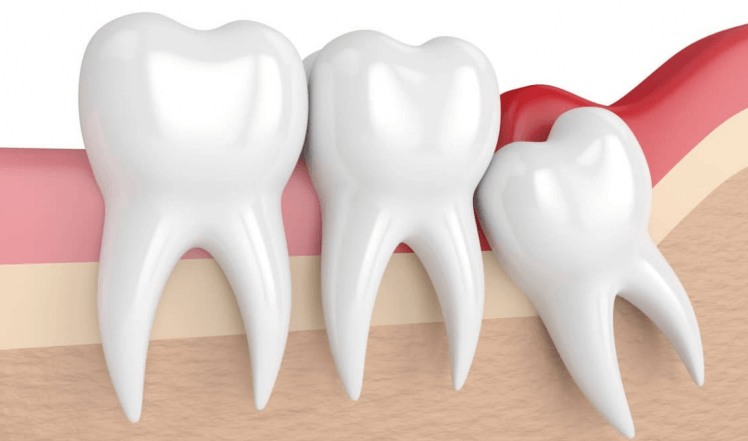
Wisdom teeth are the third molars that are known to cause dental problems by growing abnormally or against other teeth below the gums. They appear much later than the other teeth in persons between the ages of 17 and 25 years. They are the last set of teeth to grow and can be found growing behind the molars at the back of the mouth.
If your wisdom teeth are causing you pain, discomfort, or are showing signs of decay, these are obvious reasons to schedule an appointment for an extraction. But what happens when your wisdom teeth come in, and you don’t have any negative symptoms? Should you still get them removed?
There are a few things your dentist will look for when suggesting wisdom teeth extraction:
Pain in the upper or lower jaw can often be the first sign that your wisdom teeth are causing problems. You may feel a sensation of pressure in the back of your mouth. Also, the gum tissue around the erupting wisdom tooth often becomes sensitive, swollen and inflamed. Some people do not experience any pain or swelling as their wisdom teeth erupt. However your regular visits to the dentist can identify if that is the case.
The first thing your dentist will do before considering taking out your wisdom tooth is taking an X-ray of it. This is necessary as the diagnosis will determine their position and how they are growing. Your dentist will also discuss sedation options with you based on the complexity of your wisdom teeth extraction procedure. After the procedure, most people recover in three to four days, but it can take a couple of weeks for your gums to completely heal. Your dentist will provide you with detailed post-surgical instructions to ensure that you have no post-surgical complications.
If you have concerns about your wisdom teeth, contact us at our Scarborough dental office and our dentist will be happy to help you with your wisdom teeth concerns.
Do you ever feel nervous about dentist appointments? Rest assured: we cater to nervous and anxious patients in a gentle and considerate manner. Call us now to schedule a free consultation!